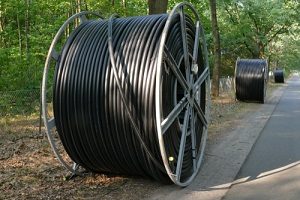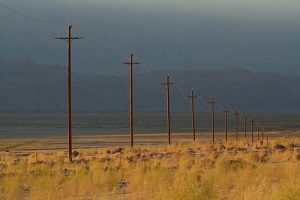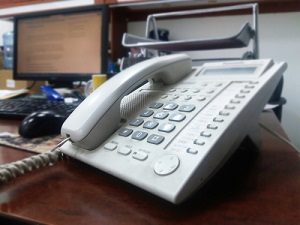Whistleblowers Needed to Stop Secret Kickbacks, Bribes, Overcharging, and False Costs in E-Rate, Lifeline, Connect America, and Rural Healthcare programs

The FCC disburses billions of dollars every year for its massive Universal Service Fund (USF) and its laudable mission to promote telephone and internet access to all U.S. persons regardless of income and location. This massive pot of government money attracts a commensurate measure of opportunists seeking to defraud these well-meaning programs.
What is the Universal Service Fund?
The Universal Service Fund comprises four main programs. Telecommunications companies fund the USF via fees that are passed on to consumers, and the Universal Service Administrative Company (USAC) manages revenues and distributions. The USF programs are:
- Connect America Fund, formerly “High-Cost Support” (for high cost areas)
- Lifeline (low-income phone service)
- E-Rate (schools and libraries)
- Rural Health Care Support (telecommunications for health care)
In addition to the federal USF program, most States have a form of state-level universal service support.
Can I bring a Whistleblower Case for fraud in a Universal Service Fund programs?
As with any fraud in a government program or government contract, if a person or company wrongfully obtains or fraudulently implements a project using federal or state USF funds, they potentially could be held responsible under the federal and/or state or local False Claims Acts.
What types of fraud are in the USF programs?
Reported fraud in the USF programs includes cheating in competitive bidding processes, bribing or providing lavish gifts to obtain the contracts, lying about the existence or need of subscribers or recipients of the subsidies, and over-ordering and then mothballing taxpayer-funded goods. Specific examples appear below. There are likely additional creative frauds on these programs that have yet to be uncovered that are costly to the federal and state governments and taxpayers, and which deprive truly needy persons and areas from receiving services. The hidden nature of such frauds often requires whistleblowers to expose them and prevent further harms.
What is the Connect America Fund (previously known as High Cost Support)?
 The Connect America Fund (previously known as the High-Cost Support program) subsidizes telecommunications services in high-cost rural and remote areas. The program provides money towards voice and internet connectivity, and hundreds of millions have funded broadband buildouts. Competitive bidding is required for some processes, including for expanded wireless services to underserved areas.
The Connect America Fund (previously known as the High-Cost Support program) subsidizes telecommunications services in high-cost rural and remote areas. The program provides money towards voice and internet connectivity, and hundreds of millions have funded broadband buildouts. Competitive bidding is required for some processes, including for expanded wireless services to underserved areas.
What type of fraud occurs in the Connect America or High Cost Fund?
Predictable misconduct in the Connect America fund includes bid-rigging or other cheating on the competitive award process, and self-dealing or other conflicts of interest. For example, in 2016, the FCC ordered Sandwich Isles Communications and its owner, Albert Hee, to pay some $77M for self-dealing in shell corporations owned by his children, misuse of USF funds for personal expenses, and other fraudulent conduct that inflated and falsified costs.
What about security concerns, Huawei, and other supply chain risks in telecom?
Concerns about cybersecurity and supply-chain risks have added complexity to Connect America Fund projects. These projects are often taken on by smaller telecommunications carriers using less expensive foreign-made equipment, including that made by the foreign company Huawei Technologies. In 2018 and 2019, several U.S. agencies, congress, and the President recognized Huawei (and other companies) as a risk to national security. They have specifically proposed and implemented bans of suspect tech from USF broadband subsidies, particularly in developing 5G networks. Companies who knowingly fail to remove such tech properly might find themselves afoul of the False Claims Acts.
Removing suspect tech from existing networks will be costly, and a bipartisan bill has been introduced to create a $700M fund to assist in such scrubbing efforts. The flux and potential funding of solutions to security concerns in all USF programs, including Connect America, may be a further magnet to fraudsters looking to cheat this new fund.
What is the Lifeline low-income program?
The Lifeline program helps low-income individuals pay for phone landlines, cellphones, and internet connectivity. The program pays well over $1B annually in subsidies to telephone companies to provide discounts of approximately $10 to households (more for Native American and Alaska Native communities).
What type of fraud exists in the Lifeline Program?
The FCC has found pervasive fraud in the Lifeline program and has recovered some losses:
-
-
- In 2014, Icon Telecom and PSPS Sales paid $27M and its owners pleaded guilty to money laundering and additional crimes for fraud in Lifeline enrollment
- In 2016, Total Call Mobile agreed to stop its Lifeline operations and paid $30M for its Lifeline fraud.
-
In 2017, the FCC Chairman found “serious weaknesses in federal safeguards, allowing providers to indiscriminately override checks that are supposed to prevent wasteful and fraudulent activities,” including verifying the identity of Lifeline recipients. One company allegedly claimed subsidies for 22,000 “phantom subscribers” a month.
The FCC is frustrated about difficult-to-detect fraud in the Lifeline program, for which whistleblower information might be helpful. An FCC advisory describes specific Lifeline frauds, including systematic schemes such as using deceased individuals’ names for discounts, patterns of name-manipulation, lying about addresses, and the wrong documentary proof.
What is the E-Rate program for schools and libraries?

The USF’s E-Rate program provides billions of dollars in discounts for telecommunications to schools and libraries. Services funded include data transmission, internet access, voice, internal connections, broadband, and certain related management and maintenance. The companies providing the services to libraries and schools receive the USF E-Rate directly; these companies are supposed to win contracts through competitive bidding. E-Rate also requires telecoms to adhere to various rules, such as the lowest corresponding price rule.
What kind of fraud is in the E-Rate program?
The E-Rate program has suffered from repeated fraud, including bid-rigging, violations of procurement rules, conflicts of interest, bribery, forgery, and securities violations. For example:
-
-
- In 2004, Hewlett Packard paid $16M to settle allegations that it gave yacht trips, Super Bowl tickets, and other expensive gifts to Dallas and Houston school district officials to bypass competitive bidding for lucrative contracts.
- In 2004, a unit of NEC and telecommunications company Intertel Technologies Inc. collectively paid some $25M for a variety of misconduct, including bribery to forego competitive bids, inflated prices, and the purchase of large quantities of unneeded equipment for the SF Unified and other school districts.
- In 2009, AT&T paid $8.2M for allegations that it engaged in non-competitive bidding for contracts in Indiana, and received funds for ineligible goods and services, overbilled the program, and paid an E-Rate applicant from program funds.
- In 2017, Verizon paid $17M to settle allegations related to overpayments received from the violations of competitive bidding rules related to New York City schools.
-
What is the Rural Health Care Program?
The Universal Service Fund’s Rural Health Care program provides financial assistance to eligible health care providers in rural areas for telehealth and telemedicine services. These services may include telecommunications such as video-conferencing, high-speed internet, and the construction of broadband networks.
Is there fraud in the Rural Health Care program?
Fraud in the Rural Health Care program can take many forms, including upcharging, bid-rigging or misconduct to win contracts, oversupply or inappropriate purchases, cheating in pricing, use of banned equipment, and bribes. In 2016 the FCC announced its plan to fine Network Services Solutions and an executive over $21M for violating the Rural Healthcare Program’s competitive bidding requirements, employing false documents to procure payments from the program, and wire fraud violations. The FCC’s extensive investigation of Network Services Solutions uncovered improper gifts, use of confidential information to gain an unfair competitive advantage, inflated rural rates, and related forged documents.
Whistleblowers are often needed to expose USF wrongdoing and hold the fraudsters accountable.
Taxpayers ultimately fund the Universal Service fund and are therefore hurt by those who cheat it. Much of the fraud, such as bribery and bid-rigging, is hidden and may require a whistleblower for the wrongdoers to be held accountable. In some circumstances, whistleblowers who come forward with their information to stop the wrongdoing may get an award from recovered funds by bringing a claim under the False Claims Act.
If you have information that a person or company is defrauding Connect America (High Cost), Lifeline, E-Rate, or Rural Healthcare programs and would like to talk with us about whether you have a whistleblower case, please contact us confidentially.
Read More:
- Government Contract Fraud
- Fraud in Government Programs
- The False Claims Act
- Think you might have a whistleblower case?
- Whistleblower FAQs
Tagged in: Bribery and Bid-Rigging, Contract Non-Compliance, Cybersecurity and Data Breaches, Education Fraud, Falsifying Invoices, FCA Federal, FCA State, Government Procurement Fraud, Government Programs Fraud, Pricing Fraud,